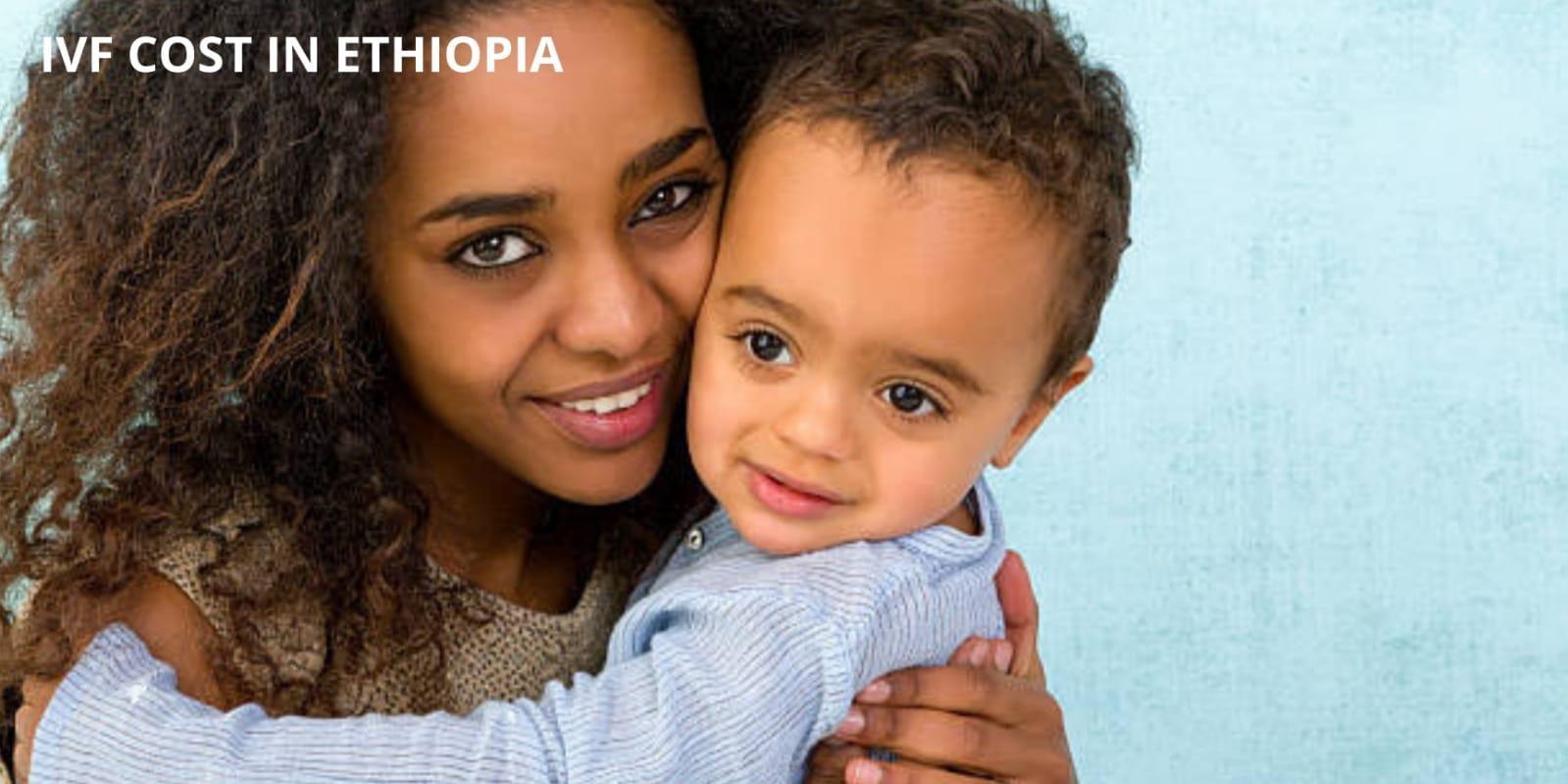- Avail the Most Experienced Embryologist at Fertility World
- Pioneer in IVF+ICSI+IUI+Surrogacy+Donor eggs
- Highest success rates over the decades.
- All fertility facilities are available at our center
- Free first consultation with our Doctors: Book an appointment
- Call/W: +1800 208 2642 Email: info@fertilityworld.in
Comprehensive IVF treatments cost in Ethiopia
| Treatments and services | Packages (Ethiopian Birr) |
| Initial Consultation for IVF | Free |
| Gynecology Scan | 500 |
| Semen Assessment | 700 |
| In Vitro Fertilization (IVF) (All inclusive) | 1,00,000 Ethiopian Birr |
| ICSI treatment | 20,000Ethiopian Birr |
| Artificial Insemination (IUI) | 3,300 Ethiopian Birr |
| ICSI for Frozen Eggs (2nd Trial/Cycle) | 10,000Ethiopian Birr |
| Ovum Pick for Freezing (for accumulation of Eggs) | 8,500 Ethiopian Birr |
| PESA and TESA | 5,000 Ethiopian Birr |
| Ovulation Induction | 2500 Ethiopian Birr |
| Egg Freezing & Storage for 1st Year | 3000 Ethiopian Birr |
| Annual storage renewal – Egg | 2,000 Ethiopian Birr |
| Sperm Freezing & Storage for 1st Year | 2,300 Ethiopian Birr |
Fertility Treatment Options in Ethiopia
- IVF
- IUI
- ICSI
- IVF using Sperm Donor
- IVF using Donor Eggs
- Frozen Embryo Transfer
- Egg Freezing
- Laser Assisted Hatching

What happens during IVF?
IVF has 6 major stages:
- Your natural cycle is suppressed by medicine
- Helping your ovaries produce more eggs : Fertility medicines and drugs are used to stimulate your ovaries’ ability to produce more eggs at once.
- Monitoring your progress and maturing eggs An ultrasound scan can be done to check the egg’s development and to administer medicine to aid in their maturing.
- Collecting the eggs A needle is inserted into your vagina to extract the eggs from your ovaries.
- Fertilizing the eggs The eggs are mixed with sperm for a few more days in order to fertilize them
- transferring embryo(s). 1 or 2 fertilized eggs (embryos), are placed in your womb
After the embryo(s)has been placed in your womb you will need to wait for 2 weeks before taking a pregnancy test to confirm that the treatment worked.
How IVF is performed in Fertility World, Ethiopia.

Consultation with our Experts: You make an appointment, and our fertility experts will connect through calls/whats app/skype, etc. Our specialists will review your fertility concerns and address those issues that you’ve noticed from your last fertility test. Our experts will address any questions you have in an expert manner and make sure you have a pleasant experience. Based on the needs they will suggest what next steps to take.
Ovulation In order to be ready for assisted reproduction, for example, IVF treatment with eggs, you’ll require hormone therapy in order to regulate your egg’s production (ovulation). In the period of 8-14 days, you (female) can expect to be infected by fertility drugs like the hormone Follicle-stimulating (FSH) as well as LH (also known as a luteinizing hormone) (LH). It boosts the number of hormones that are present within your body, which encourages your body to create more than one egg (stimulation) every month.
This will prevent the possibility of ovulation fluctuations that may result in it is not necessary to stop attempts for reproduction in vitro. This is typically done using one of two similar types of gonadotropin-releasing hormone analog (GnRH agonist or GnRH antagonist). Two instances of how ovulation might be controlled are:
It’s the first day of the nasal or injected GnRH antagonist that “shuts down” the pituitary gland. Following that, you’re receiving daily injections of ovular stimulating hormones and are closely monitored for two weeks prior to the retrieval of eggs. At home, you and the person you are with injecting gonadotropin, also known as Follicle-stimulating hormone (FSH) to aid your ovaries produce numerous eggs (superovulation).
The treatment starts with FSH injections. Then, you add a GnRH antagonist injection after five days. The injection will stop the production of LH. (LH) within an hour or about an hour or.
After a week of treatment to induce ovulation, doctors will check the levels of estrogen present in your blood. The doctor will use ultrasound to track the development of your egg inside your follicles. The next week, your dosage could change based on the findings of this test. Your health is also regularly monitored through transvaginal ultrasounds as well as blood tests performed by experts.
Egg Retrieval Chorionic Gonadotropin (hCG) injections are given in order to stimulate the follicles to develop to mature eggs. The mature eggs are removed at the age of 34 to 36 hours using needle aspiration assisted by ultrasound. Most patients are treated using an injection of painkillers as well as sedation during the procedure.
Sperm collection: Sperm is collected through masturbation. or by taking out the testicle’s sperm via an incision of only a small size. This procedure is done to clear blockages that prevent Sperm from excreting or when there is a problem in the growth of the sperm. Sperm might have been frozen and taken previously. The sperm is then frozen and then frozen when eggs are collected.
Fertilization and Embryo Culture:
Once eggs have been retrieved and tested in the lab for quality and maturity. Eggs that are mature are put inside IVFculture mediums. IVFculture medium, and then placed in an incubator in order to wait for fertilization by sperm.
Fertilization can be achieved through insemination in which the motile sperm is placed with the oocytes. They are then placed incubated for a few hours or via intracytoplasmic injection of sperm (ICSI), where one sperm is in every mature egg.
The embryos can be transferred to a uterus anytime at any point from one to six days following the retrieval of eggs. Tests for blood pregnancy after embryo transfer, the blood test is conducted to determine the amount of human gonadotropin (hCG ) which signifies a positive pregnancy. After you’ve confirmed your pregnancy, you’re allowed to carry your child like all women and go about your daily routine. You’ll be scheduled for an examination to check the condition and heartbeat rate of your baby.
IVF Using your Own Eggs
The cost estimate for IVF within Ethiopia starts around 1,00,000- 1,20,000 Ethiopian Birr, using your own eggs and sperm you have created on your own. This method is very affordable since the fertility specialist at the upper level will gather eggs that originate from the women’s ovaries, and mix them with the sperm from your husband to help fertilization. After fertilization is completed, the embryologist will select and then place the embryo that is most suitable into the uterus of your baby. Our experts will look for signs of pregnancy.
After two weeks after embryo transfer, you need to visit the fertility clinic to take the pregnancy test. If the results show a positive pregnancy then you’ll be referred back to your nearby Obstetricians as well as Gynecologists. If the pregnancy does not occur following this, you can continue your IVF cycle or choose other assisted reproductive methods to become pregnant. If a couple goes through multiple IVF cycles to go through, then the cost IVF for IVF in Ethiopia can be quite expensive due to the expense of laboratory and medication.
IVF using egg donors
The average cost for IVF using eggs donated by donors from Ethiopia is about 2,00,000- 2,20,000 Ethiopian Birr, which is a bit costly when compared to eggs that you have because it’s a process that involves a fertility specialist using eggs donated by healthy, young, and fertile women who are less than 28. After fertilizing her eggs, she uses the father’s sperm whose goal is to ease the process of fertilization. Once fertilization is completed, the embryo created is then placed into the uterus of the potential mother. The process involves the cost of IVF costs, fees for fertility specialists and embryologists, and the expense of egg collection and compensation for egg donors.
How Conception Takes Place Naturally?
In order for a woman to become pregnant, the sperm of a man must move from the vagina, through the cervix (the narrow lower part inside the womb) through the uterus (womb), and finally into the fallopian tubes. If sperm is found in the tubes shortly after the release from the ovary (ovulation) then the egg and sperm may meet inside the tube, usually in the direction that Ovulation took place and fertilization can occur.
The Fertility World IVF Center located in Ethiopia ranks among the best IVF treatment centers around the globe that offers the most effective IVF treatment as well as the highest rate of success, which is up to 100. The center provides complete satisfaction that is non-compromising. Its pricing model offers the most affordable package of IVF treatments available in Ethiopia.
Fertility World’s Success Demographics
Our success rate keeps increasing because of its consistent rate of growth and the exceptional treatment performed by our highly skilled team. Our IVF cost for IVF in Ethiopia is covered entirely or in part, depending on the provider you’re employing. We recommend that all of our patients call at least one of our IVF centers
in ETHIOPIA in order to find out more about our insurance policies and whether we are able to allow your insurance provider to pay for IVF treatment or not. It is vital to know that IVF costs in Ethiopia depend on the circumstances of couples that are not able to conceive and the age of the couple. In the event that,
for instance, an egg from a woman doesn’t contain the potential for fertilization by male sperm, couples to this day are forced for IVF treatment by using eggs donated by a donor. This will add costs on top of the IVF total cost and could be more costly than conventional IVF treatment. The area of the center as well as the experience of IVF specialists IVF experts who’s more experienced and their rate of success can also affect the price associated with IVF procedure at the particular IVF center in Ethiopia. Therefore, couples are advised to select any of these centers before looking at all angles to evaluate for IVF treatment.
WHEN TO END TREATMENT?
A variety of factors must be taken into consideration when deciding on the right therapeutic endpoint. The members of the IVF team can assist couples in deciding whether to end treatment or consider other options, if necessary.
We’re here to help.
For more information or to simply talk to the fertility expert of the Fertilityworld team, get in touch today by giving us a call/W on +91 9311850412 or via Email: info@fertilityworld.in



One thought on “IVT Treatment in Ethiopia | IVF Cost in Ethiopia”